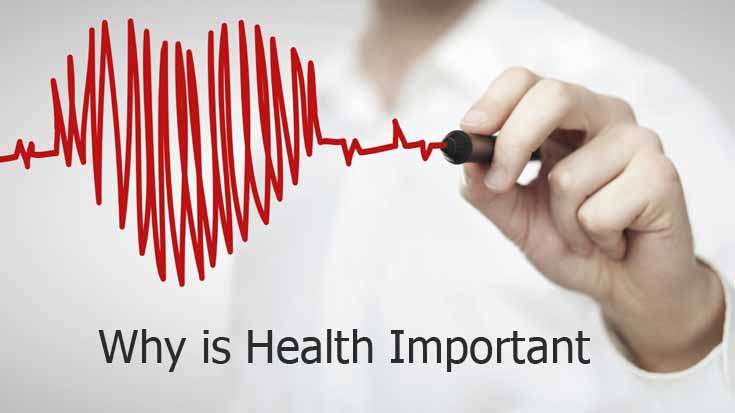Eating a healthy, balanced diet is one of the best ways to improve your health. It can help prevent diseases, maintain a healthy weight and boost mood.
However, the importance of a healthy lifestyle is not limited to these areas. In order to fully grasp the concept of health, it’s important to consider a number of factors.
1. It’s a way of life
It’s often thought that health is a state of being free from disease or illness, but there are many other aspects to it. Health is a way of life that involves many different factors, from diet to exercise to mental wellness.
These factors are called the social determinants of health. They are the conditions in which people live, learn, work, play, worship and age that affect their overall health, well-being and quality of life. They also contribute to wide disparities in health outcomes and risks.
A person can’t control all of these factors, but they can make small changes that add up over time. For example, eating healthy foods such as whole grains instead of sugary drinks and processed foods can make a big difference in your health. By incorporating these habits into your daily routine, you’ll see a long list of benefits, including increased energy and a lower risk of diseases and illnesses. These healthy habits can lead to a longer life, too!
2. It’s a way of surviving

Just as there was a shift from thinking of disease as a state, there is also a need to think differently about health. Instead of defining health as the absence of disease or impairment, it should be defined in terms of an individual’s ability to realize aspirations and satisfy needs, adapt to change, and cope with a complex environment.
Today, the health sector is pursuing narrow goals such as improving access to care and containing costs or increasing profits. However, these goals are misaligned with the interests of patients. Changing the place of health on the value scale requires efforts by all stakeholders: individuals, their families, friends, communities, governments, schools, media, and laws. This can be a daunting task because values are shaped throughout the course of a lifetime. Ultimately, it is up to individuals to decide what they want health to be about. They must define their own peak of health and take steps to maintain it, browse around this website.
3. It’s a way of thriving
It is important to view your health as a way of thriving, rather than surviving. This includes all aspects of your life, from emotional and mental health to physical wellbeing. If we neglect any of these areas, it can have a negative impact on our whole health. For example, if you have poor mental health, it can affect your physical wellbeing, such as by increasing your stress levels. This is because they are so closely linked. Changing the place of health on people’s scales of values, however, is not an easy task and is not something that can be accomplished by the health sector alone.
It must involve everyone, including individuals and communities. This can be done by focusing on preserving healthy lifestyles and by investing in health prevention and social services. It also involves understanding and addressing the underlying causes of disparities in health, known as the social determinants of health (SDOH). This is what we mean when we talk about ‘health for all’.
4. It’s a way of being
While there are many different definitions of health, one of the most common is “a state of complete physical, mental and social well-being and not merely the absence of disease or infirmity.” This is known as the biopsychosocial model.
Many factors contribute to health, including genetics, environment, and lifestyle. The social determinants of health (SDOH) are the conditions in which people are born, live, work, learn, and play that influence their health outcomes, functioning, and quality of life. These include the economic and social structures that shape opportunities to thrive, as well as the physical environment that affects exposure to germs, pollution, and access to healthy food.
Conclusion:
Having good health means living consciously in all areas of your life, both physical and mental. Neglecting any of these areas can be detrimental to your overall health and wellbeing. It’s important to understand that the five aspects of health are interconnected and should be approached holistically. Find out more here.


